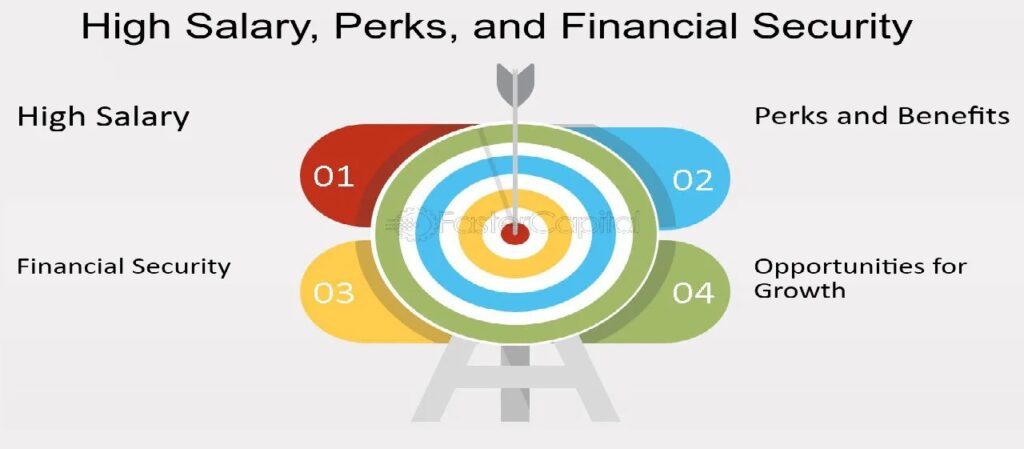
As with gambling on VulkanBet, a job means different things to different people. For some, it gives their life a sense of meaning and purpose. For others, it’s nothing more than a source of livelihood. In general, people tend to connect who they’re as people to jobs. Apart from offering some sort of identity, job security is important for various reasons.
Most people rely on their workplaces and benefits to fend for themselves and their loved ones. A salary allows most of us to eat, pay rent or a mortgage, pay for unforeseen medical bills, send our children to school, and so on.
A secure job is a key part of many people’s future plans, ambitions, and goals—and no one wants to build their future on shifting sands. There are many ways job security and benefits can make you want to stay put in your current job, which we’ll discuss next. But first of all, let’s understand the concept of job security.
What’s Job Security?
This is the feeling of knowing that you’re not going to lose your job soon. It’s an assurance that you’ll continue working in your current workplace for the foreseeable future. With job security, you know that you’re protected from things such as economic downturns, layoffs, and other things that might impact employment. Having said that, we’ll examine the importance of job security and benefits and tie it to how it can influence your decision to remain at your current workplace.
Why Job Security Matters
Job security is beneficial for employees in many ways, and it’s no surprise that constantly worrying about being laid off can have devastating effects in every area of your life. Each of the following benefits may seem obvious, but they have a profound impact on a person’s life:
- Lowers anxiety and stress. Constantly feeling that you’re about to lose your job isn’t a good way to live. Fear of layoffs can take a severe toll on people’s physical and mental health, which spreads into all other aspects of life, including their relationships with family and friends. Moreover, mounting anxiety and stress is a fast lane to employee burnout.
- Enhances productivity and engagement. Security at work may help employees increase productivity in their roles. With the knowledge that their job is safe, employees have better focus and determination. They can also get the motivation to grow in their career or role in the company.
- Improves job satisfaction. A stable workplace environment contributes to general job satisfaction among employees, dissuading them from leaving and looking for other opportunities.
- Encourages creativity and innovation. Job security encourages workers to think outside of the box and take risks. This can result in innovative concepts and solutions.
- Fosters feeling of being valued. Employees who feel recognized, valued, and rewarded in their workplace are more likely to stay loyal to their employer, decreasing turnover costs. Therefore, this sense of being valued helps them focus better on the work at hand.
- Fosters positivity among employees. Job security can make employees feel more positive at their workplace. This means it might improve relationships among employees and between employees and customers. Positive attitudes may also result in increased productivity and teams egging each other on.
Importance of Employee Benefits
Benefits consist of various perks, incentives, and support systems employees are provided with in addition to their basic paycheck. A comprehensive benefits package can have a substantial impact on companies retaining their employees because it communicates a sense of appreciation and care from the employer. The most common benefits employees can get include:
- Health insurance. Employees, especially those who have families, do greatly benefit from comprehensive health insurance coverage.
- Paid time off. Sizable paid time off perks, including personal days, sick leave, and vacation days, can enhance job satisfaction and work-life balance.
- Professional development opportunities. Education, training, and career advancement opportunities can enhance motivation and help employees grow in the company.
- Flexible work options. Flexible arrangements, including flexible hours or remote work, can improve employee productivity and well-being.
- Financial benefits. Employer-supported stock options, bonuses, and retirement plans, such as 401(k) plans, help workers save toward retirement. Financial benefits make workers feel valued, motivating them to stay in the company for longer periods.
Workplace stability and benefits—the assurance and confidence that you’re not going to lose your job, at least in the foreseeable future— are crucial to the well-being and performance of employees. It can influence your decision to stick with your employer and plan for the future. On the other hand, benefits convey a message of being recognized, valued, and rewarded for your efforts. A combination of employment stability and benefits fosters a motivated and committed workforce.
Organizations that prioritize stable workplace environments and offer attractive benefits create positivity among workers that attracts and keeps top talent. Therefore, this may lead to enhanced innovation, productivity, and long-term success.


